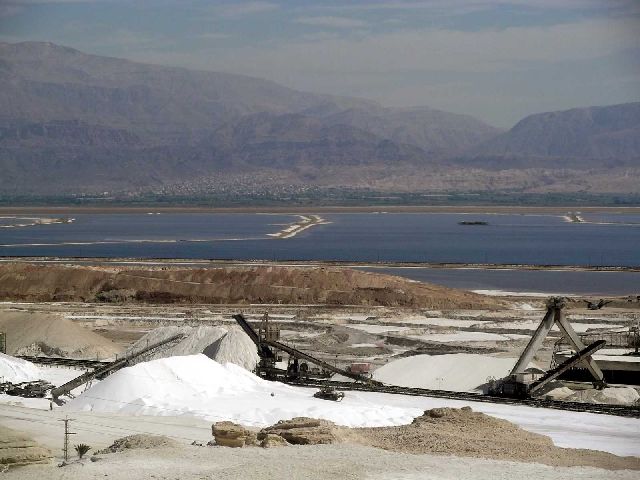Israel Chemicals (ICL) and Lev Leviev Namibia Phosphates (LLNP) will in due course set up a plant in Lüderitz to test the feasibility of mining marine phosphate the Economist has established.
The feasibility study will span two years and as much as 150 people are expected to be employed during the trial process, according to Israel Chemicals spokesperson, Beny Leifer.
Will you offer us a hand? Every gift, regardless of size, fuels our future.
Your critical contribution enables us to maintain our independence from shareholders or wealthy owners, allowing us to keep up reporting without bias. It means we can continue to make Jewish Business News available to everyone.
You can support us for as little as $1 via PayPal at office@jewishbusinessnews.com.
Thank you.
He said that the joint-venture has all the necessary permits to conduct the study. He could however not provide an indication about when the study would commence.
Responding to questions posed by the Economist Leifer said in an emailed response, “we have signed a Memorandum of Understanding with Lev Leviev Namibia Phosphate (LLNP) to conduct a feasibility study to mine phosphate and set up a fertilizer manufacturing industry in Namibia. LLNP has the required licences and permits to conduct such feasibility study.”
Added Leifer, “all necessary Environmental Impact Assessment Studies are part of the feasibility study.
The moratorium on mining was for a period of 18 months to allow the Ministry of Fisheries and Marine Resources (MFMR) to conduct some studies and already expired during March 2015”.
Leifer explained that the exact volumes and products will be determined during the course of the feasibility study.
Explaining the basics, Leify said, “a feasibility study will be carried out by reputable international consulting firms and we estimate that during such stage the project will employ approximately 150 employees, out of which 90% will be Namibian. Subject to the successful results of the feasibility study, we will continue to the construction of the phosphate facility, after which we will be able to estimate the number of employees.”
He added, “the length of the feasibility study is 2 years. If successful in all aspects including environment and permits are given, the industrial plant will be built during a period of 3 to 4 years.”
Releasing a press statement in December, Israel Chemicals said, “within the framework of this cooperation, the companies will comply with a due diligence survey, including conducting stringent performance tests (EIA) related to evaluating the preservation of environmental quality.
In addition, the fertilizers to be manufactured by the companies will contribute to the world’s agricultural sector and food industry in general, and to Namibia’s, in particular. Among the products to be manufactured by the joint venture will be fertilizer products that are specifically appropriate for Namibia’s agricultural industry and that will help to provide richer agricultural products and alleviate difficulties experienced by Namibia’s farmers.




